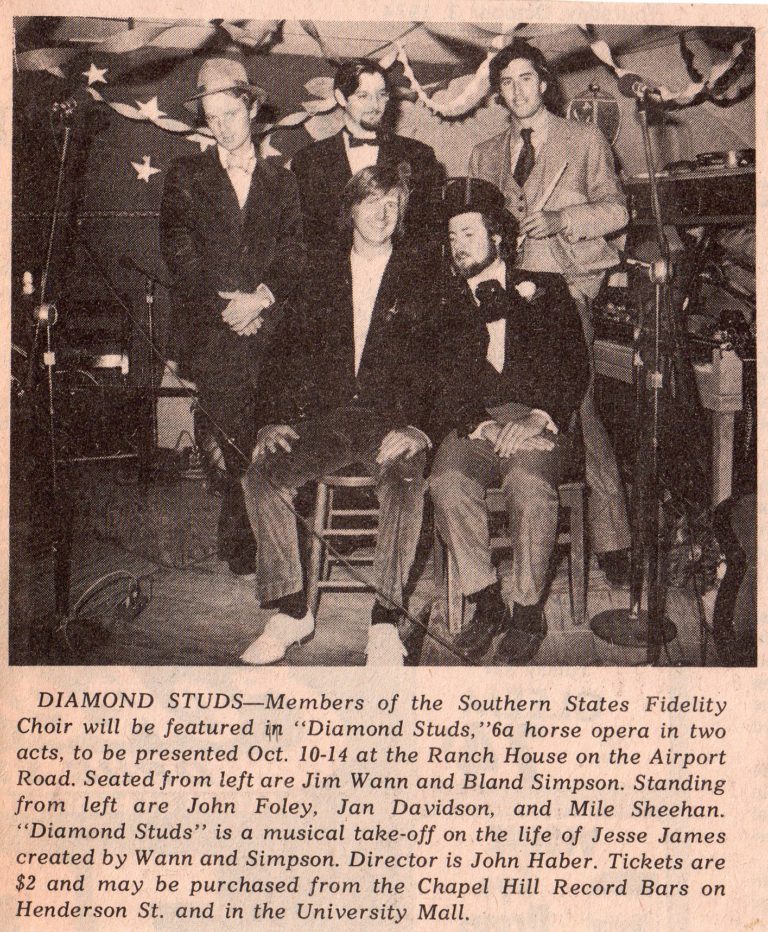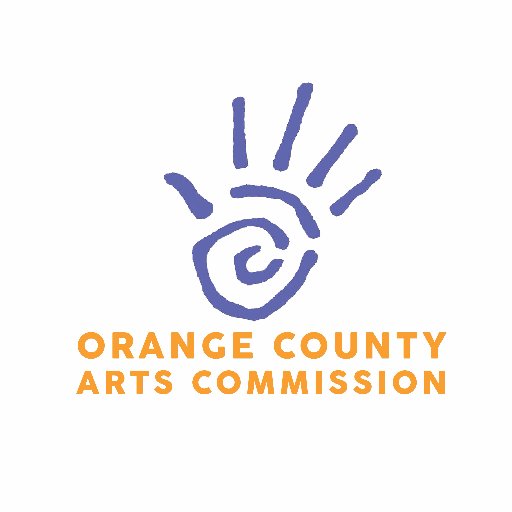Via the Orange County Arts Commission, Article by David Menconi
Nowadays Bland Simpson is best-known as a celebrated and beloved UNC-Chapel Hill professor and author, pianist of the Red Clay Ramblers and collaborative architect of musicals including “King Mackerel And The Blues Are Running,” “Kudzu” and “Diamond Studs.” Five decades ago, however, he was a UNC student and aspiring singer-songwriter looking for a breakthrough in the big city of New York.
A document of that time is back in circulation, his debut album “Simpson,” which was released by the major label Columbia Records in 1971. Fifty years later and long after it fell out of print, “Simpson” has been digitally reissued. It’s a for-charity effort, too, with proceeds earmarked for the Food Bank of Central & Eastern North Carolina.
“As we approached the 50th anniversary, I thought about how much work had gone into it,” Simpson says. “I didn’t want it to be completely forgotten because it’s got some songs I really like. And if anybody wants it, they can get it by sending some money to the food bank. Right now any food bank needs any amount of money they can get.”
“Simpson” was the culmination of a process that began during UNC’s 1969 spring break, when the young man went up to New York City and walked into the office of Albert Grossman – a management/publishing impresario who handled some of the biggest acts in the music business, Bob Dylan, The Band and Peter, Paul and Mary among them.

Simpson played a few of his songs for one of Grossman’s associates, found himself escorted directly into a recording studio for a demo session and then over to New York’s fabled Gaslight nightclub to see the legendary Tim Hardin (of “If I Were a Carpenter” fame). At that point, he was introduced to the equally legendary singer/civil-rights activist Odetta.
“That was a pretty magical day,” he recalls now. “Show up, play, go into a studio an hour later, go see Tim Hardin sing the hits and get to meet Odetta. The woman who brought me there said, ‘Odetta, I want you to meet a songwriter from North Carolina who just laid down a few songs for us.’ And she gave a big laugh, stuck out her hand and said, ‘Welcome to town.’”
Grossman signed Simpson to a publishing contract, which didn’t last long because his style was deemed to be too similar to another rising songwriter, Jesse Winchester.
“That was the first lesson in how cold and crazy the music business can be,” Simpson notes.
But getting in the door there, however briefly, started things rolling for him and eventually led to Columbia releasing “Simpson.” The music bears more than passing resemblance to the stately yet loose-limbed country-rock of The Band, with contributions from a number of notables including Simpson’s UNC classmate David Olney plus bassist Rob “Stoner” Rothstein, who went on to be bandleader for Dylan’s Rolling Thunder Revue in 1975.
Also playing on “Simpson” were future stars like guitarist Rick Derringer, a few years before his calling-card hit “Rock and Roll, Hoochie Koo,” and Greenbriar Boys multi-instrumentalist Eric Weissberg – best-known for 1972’s “Dueling Banjos,” the “Deliverance” soundtrack knockoff of the old Arthur Smith tune “Feudin’ Banjos.”
“Simpson” was a cult favorite in some circles, picking up airplay in New York, but it was not a chart hit. Simpson was working on a followup album when Columbia opted not to renew his option and dropped him. That was when he got what proved to be some good advice from a producer named Ed Freeman (who went on to produce Don McLean’s “American Pie”): Quit chasing record deals, get out of New York and put more time into writing and woodshedding.
“That was some cold water,” Simpson says. “But he was right. Probably the best professional advice I ever got from anyone: ‘Keep writing, quit living up here because it’s too expensive and come back when you have your next thing to sell.’ And that’s what happened, with Southern States Fidelity Choir, Red Clay Ramblers and ‘Diamond Studs.’ When we brought that up to New York a few years later, I invited Ed and it was joyous. Afterward he was standing there smiling: ‘I was right, wasn’t I?’ ‘Yes, Ed, you were.’”
LP available at https://blandsimpson.bandcamp.com/.
 Chapelboro.com has partnered with the Orange County Arts Commission to bring more arts-focused content to our readers through columns written by local people about some of the fantastic things happening in our local arts scene! Since 1985, the OCAC has worked to to promote and strengthen the artistic and cultural development of Orange County, North Carolina.
Chapelboro.com has partnered with the Orange County Arts Commission to bring more arts-focused content to our readers through columns written by local people about some of the fantastic things happening in our local arts scene! Since 1985, the OCAC has worked to to promote and strengthen the artistic and cultural development of Orange County, North Carolina.


